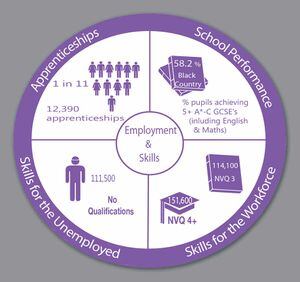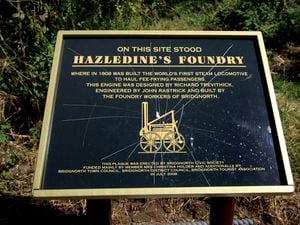Why we in the Black Country are not being paid enough
People in the Black Country are paid less, have fewer workplace skills and are in worse physical shape than the UK average, a detailed new report has found.

At the same time, the area has become the UK's centre for high value manufacturing, with 90,000 people working in 5,000 companies and components made in the Black Country fitted in virtually every car and aircraft made in the UK.
The challenges facing the communities in Wolverhampton, Walsall, Dudley and Sandwell have been laid out in an economic review of the area.
SPECIAL REPORT - Black Country economic review: A tale of mixed fortunes
Compiled by the economic intelligence unit of the Black Country Consortium – the body with the job of co-ordinating efforts to regenerate the area – the report showed the number of people in the workforce rose by 3,000 last year. But, while 9,000 jobs were created in the private sector, 6,000 were lost in the public sector as deep cuts were made.
But, while the area's workforce rose to 432,300 people, the number classed as 'workless' – or claiming one of the main out of work benefits – stands at around 112,000. That's equivalent to a town the size of Exeter, Colchester or Blackburn.

Almost the same number, 111,500, are considered unskilled.
On the bright side, the Black Country's secondary schools performed better, with increasing numbers of pupils achieving five good GCSEs including English and Maths.
But the average wage is still only £23,256, £3,761 less than the UK average.
And in terms of health, despite improvements in figures for infant deaths, teenage pregnancy and children in poverty, are still 'significantly worse' than the UK average. Deprivation is more than twice as bad in the Black Country than UK-wide, while figures for diabetes and childhood obesity were also high.
Despite this, the Black Country is gradually reversing the trend of a shrinking population, adding 7,000 residents last year to give it 1.14 million people across the area.
The economic review is part of efforts to regenerate the Black Country, keeping track of key targets in an ambitious 30-year plan to put it on a par with the rest of the country.
Have your say on the report in the comments section below:





